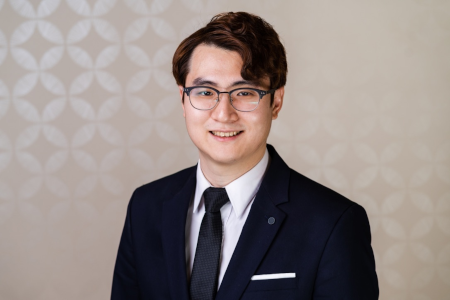At BioCanRx, we are incredibly proud of our HQP and their dedication to cancer immunotherapy research. Whether they are working on viruses in the lab or examining the socioeconomic barriers to adopting certain treatments in Canada, each one plays a unique role in strengthening our network and expertise in immunotherapy.
BioCanRx is invested in our HQP by providing them with both the training and skills they need to be leaders in academia and industry.

My name is James, and I am a post-doctoral scientist studying the process of aging and its impact on our immune system. I completed BSc at McMaster University where I developed an early passion for immunology. To synergize my interests in fundamental immunology and cancer medicine,
I completed my MSc and PhD at the University of Toronto under the supervision of Dr. Pamela Ohashi and mentorship from Drs. Tak Mak and Naoto Hirano. My doctoral research focused on 1) understanding the role of Cbl-b in T cell tolerance, and 2) applying the knowledge to improve adoptive T cell therapy against solid tumors. During my PhD training, I have been actively involved in BioCanRx through involvements in 1) the HQP Working Group (helping plan BioCanRx Summit4CI, virtual seminars, etc), 2) adjudication committee in the HQP development committee, 3) BioCanRx meetings and 4) Cancer Stakeholder Alliance Learning Institute.
2. Where do you work now, and what is your position?
I currently work as a joint post-doctoral scientist at Harvard University under the mentorship of Drs. Arlene Sharpe and Marcia Haigis. Dr. Arlene Sharpe is a world-renowned immunologist with expertise in PD-1 biology, and Dr. Marcia Haigis is a world-renowned expert in tumor metabolism. As a post-doc in both of their labs, I am currently investigating how aging influence anti-tumor and anti-viral T cell immunity.
3. What does a typical workday look like for you?
One of the most exciting aspects of being a scientist is that each day is different, and that you have the opportunity to become involved in many different projects within and outside of your research. As a post-doc, I am actively involved in 1) spearheading various independent and collaborative research projects, 2) writing papers/reports/grants, 3) brining scientists together both within and outside of Harvard, and 4) networking with passionate scientists across the globe. I currently hold leadership position in many professional organizations including the AACR Associate Member Council, the CCIC Trainee Development Committee, the OICR Rising Stars, and recently worked as a scientific consultant for Merck. So typical workday is different, intense and fun!
4. How has your experience with BioCanRx contributed to your career development?
BioCanRx has been an integral component of my scientific training. BioCanRx provided many different opportunities including awards, conferences, seminars and leadership positions. Through active participation in these programs and the leadership community, I was able to acquire a strong network of scientists and diverse skills as a researcher! I would highly encourage every trainees in immune-oncology to get involved with BioCanRx.
5. What advice do you have for career development that you would pass on to other BioCanRx trainees?
My first advice to other BioCanRx trainees would be to proactively seek for diverse opportunities beyond your research laboratories. While it is important to prioritize on your own research, I also believe that developing network, leadership skills and exposure to different career trajectory are extremely important part of one’s scientific career. I would highly encourage everyone to step beyond your comfort zone – you never know where it may take you. Again, organizations such as BioCanRx is a fantastic avenue for you to develop diverse network and acquire exposure to different career routes.
Second, I would encourage trainees to spend time and energy in developing meaningful relationships with the people in your professional communities. Since we are at an earlier stage in our scientific career, surrounding ourselves around great mentors and highly motivated colleagues can have a direct impact on our personal and professional growth! This has been an important component of my professional journey – to actively seek for highly motivated colleagues and mentors at institutional, national, and international levels.